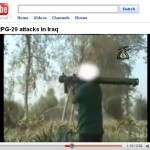Missile Watch – June 2010
Missile Watch
A publication of the FAS Arms Sales Monitoring Project
Vol. 3, Issue 2
June 2010
Editor: Matt Schroeder
Contributing Author: Scoville Fellow Matt Buongiorno
Contents:
Global News: Survey of black market prices for shoulder-fired anti-aircraft missiles reveals large differences in missile prices
Afghanistan: No shoulder-fired anti-aircraft missiles in seized Afghan arms caches, confirms ISAF spokesperson
Egypt: Shoulder-fired missiles found in the Sinai were old, “in very bad condition,” says Egyptian official
Iraq: Shoulder-fired missile in video of insurgent attack could be Iranian
Iraq: Missile seized in 2008 was a 30-year-old Russian Strela-2M MANPADS, documents reveal
Iraq: At least 27 shoulder-fired anti-aircraft missiles seized from arms caches in Iraq since February
Lebanon: Israeli claim about Igla-S delivery to Hezbollah raises many questions
Peru: U.S. government concerned over reported missile diversion in Peru, but praises investigation
Somalia: Shoulder-fired missile attack at Mogadishu airport foiled by peace-keepers, according to UN report
Additional News & Resources
About Missile Watch
About the Authors
The Pentagon’s new report provides additional context and useful perspectives on events in China that took place over the past year.
Successful NC3 modernization must do more than update hardware and software: it must integrate emerging technologies in ways that enhance resilience, ensure meaningful human control, and preserve strategic stability.
The FY2026 National Defense Authorization Act (NDAA) paints a picture of a Congress that is working to both protect and accelerate nuclear modernization programs while simultaneously lacking trust in the Pentagon and the Department of Energy to execute them.
While advanced Chinese language proficiency and cultural familiarity remain irreplaceable skills, they are neither necessary nor sufficient for successful open-source analysis on China’s nuclear forces.
